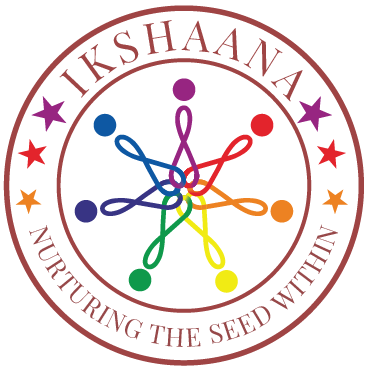An Introduction to our guiding philosophy – Our breath of life
In the early 1900s, the Austrian philosopher and educator Rudolf Steiner wished to create a new form of education that would help pupils achieve clarity of thought, sensitivity of feeling and strength of will. After listening to his lectures, the workers at the Waldorf-Astoria factory in Stuttgart asked him to form a school for their children and, in 1919, the first Steiner/Waldorf School was founded. Today, from Sao Paulo to the villages of Nepal, there are well over 1000 schools and 2200 Early Years centres in over 60 countries, serving children from birth to 18 years of age.
Teaching in a Waldorf School is based on Rudolf Steiner’s insight into life in general and the nature of the human being in particular. His philosophy is called Anthroposophy.
The educational aspects of this philosophy spring from and understanding of three seven-year cycles of development: from birth to seven, from seven to fourteen, and from fourteen to twenty-one. At each stage, the education is designed to work with the unfolding abilities and changing needs of the child. These stages connect with the development of all round human qualities of thinking, feeling and willing. In the first phase the active or will aspect is predominate, in the second the affective or feeling aspect is dominant, in the third the cognitive or thinking aspect comes to the fore.
A central aim of Waldorf education is to develop, harmonise and unite the faculties of thought, feeling and action in the action, so that the foundations may be laid for mental adaptability, initiative and moral strength in adult life. The child is seen to have physical, emotional and spiritual needs as well as intellectual ones. The teaching and curriculum together seek to nourish all these aspects.
Globally Waldorf Kindergartens children start their formal education during their seventh year. However it’s a bit different for us in India and the age criterion has come down from 6.5 to almost 5 now in a few states. However, we continue to foster the courage to do what is developmentally age appropriate and fulfill the need of what early childhood education demands for a healthy development of the child. Our approach of not forcing formal learning is born out of a desire to protect the faculties of feeling and willing which are so often marginalised in the rush to meet early intellectual attainment targets.
The carefully structured environment is designed to foster personal and social learning. During these years we teach by example and learning in integrated rather that subject-based.
Our curriculum aims to adapt itself to the child. The children in our Kindergarten are given time to unfold at their own pace. Young children are gifted players and imitators. These creative faculties, which appear shortly after birth and recede at around the age of seven, are the child’s personal pedagogues. The Waldorf teacher cooperates and works with these powerful educational forces.
Each day some time is dedicated to creative free play. Studies demonstrate that good players show more empathy towards others and have less aggression; are able to see things from the perspective of the other, and exhibit fewer signs of fear, sadness and fatigue.
Play also strengthens the imagination. Through play, children are able to exercise and consolidate their ability to understand and to think, as well as to develop and strengthen their concentration. Creative play supports physical, emotional and social development and allows children to learn through investigation, exploration and discovery. It encourages children to become inventive and adaptable.
We are a community of ‘doers’ and our work is a combination of practical and artistic activity. We sing, play, maintain our little garden and go outdoors, care for our living spaces indoors and also the cook in school lovingly share and eat meal together. Children love to help and through it they develop a wide range of motor skills, such as dexterity and hand-eye coordination. The presence of a working adult creates an atmosphere that helps the children to become independently active. To see an adult working with their hands, doing something where skill, concentration and perseverance are all demanded, is a wonderful example to the ever-watchful child and exercises the sustained application of will power. All that the adults do, but also how they do it, how they handle their tools and materials, even their gestures and body language, are all registered and internalised by the child.
In the Kindergarten, children make real things from real materials that have a meaningful application in the world they know. In this way, the children acquire the basis for social and academic skills at their own pace. Education at this stage is about instilling in children a genuine feeling of worth and belief that they can succeed. Steiner education addresses the whole child- head, heart and hands- and provides the best possible beginning for your child to grow to his or her full potential in a way that protects the wonder and delight of early childhood.
The classrooms are designed around the child, with beautiful colours and natural materials. We use high quality natural colours and crayons and are conscious of what we are eating i.e., simple home cooked and avoiding artificial and synthetic food substances, whenever possible.
The strong rhythm of the day, and the repetition that each week brings, carries with it an inbuilt discipline. This creates a safe and secure environment for the child that enables more effective learning and also reduces the need for additional discipline. Our aim is to build a bridge between home and school by creating a safe, warm and loving environment.

